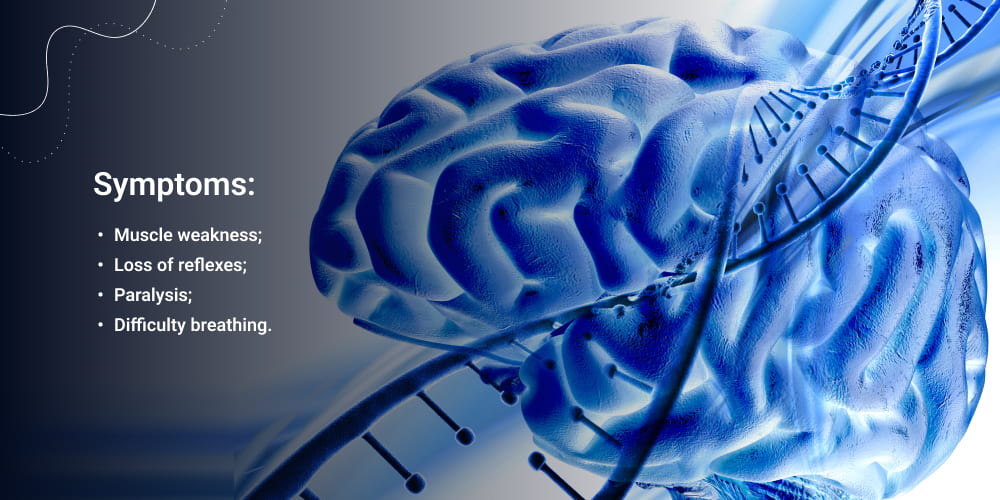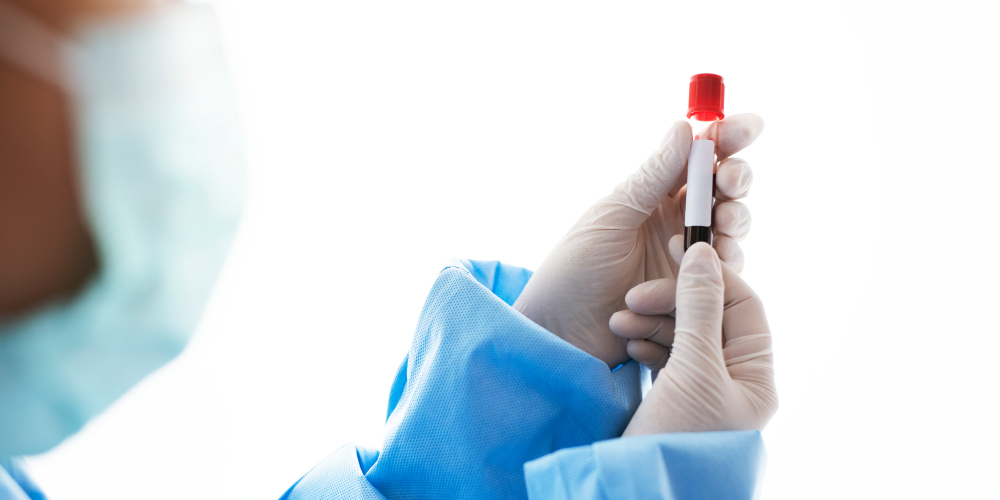What is GBS? It’s a question many people have but don’t know the answer to. GBS is extremely rare. Every year, approximately 3,000 to 6,000 people in the United States develop GBS, regardless of whether they received a vaccination – that is, one to two people out of every 100,000.
Guillain-Barre syndrome is a rare condition in which the immune system attacks your nerves and refers to the group of neurological disorders. The first symptoms are usually weakness and tingling in your hands and feet. These sensations can quickly spread, paralyzing your entire body.
In this article, we will discuss all aspects of GBS, including its symptoms, causes, and treatment. Keep reading to learn more!
What Are the Symptoms of Guillain-Barre Syndrome?
The symptoms of Guillain-Barre syndrome (GBS) can vary from person to person. In some cases, the first symptom may be a tingling or numbness in the extremities, which can spread to the entire body.
Other common symptoms include:
- Muscle weakness.
- Loss of reflexes.
- Paralysis.
- Difficulty breathing.
These symptoms usually develop over a period of days or weeks. In severe cases, GBS can lead to respiratory failure and even death.
Therefore, if you experience these symptoms, you need to see a doctor urgently. Timely assistance and the correct diagnosis can help or alleviate the suffering from the condition.
What Are the Causes of GBS?
The cause of GBS is unknown, but it is believed to be triggered by an infection or another event that leads to an abnormal immune response. In most cases, GBS occurs a few days or weeks after a person has had a viral infection, such as a cold or the flu. Other possible triggers include:
- Bacterial infections, such as campylobacteriosis or cytomegalovirus infection.
- Autoimmune disorders, such as lupus or rheumatoid arthritis.
- Physical trauma, such as a car accident or surgery.
What Are the Complications of GBS?
Almost every disease has its development, which significantly complicates the life of any patient. Most often, this development is called a complication. Often one condition can lead to other diseases and develop into worse scenarios like death. That is why it is essential to prevent this and treat the disease as soon as possible.
In severe cases, GBS can lead to complications, such as:
- Respiratory failure.
- Cardiac arrhythmias.
- Blood clots.
- Kidney failure.
GBS can also lead to death in some cases. However, most people with GBS recover fully within a few weeks to a few months.
What Are the Guillain-Barre Syndrome Types?
There are two types of GBS: acute inflammatory demyelinating polyneuropathy (AIDP) and Miller Fisher syndrome (MFS). AIDP is the most common form of GBS, while MFS is a less common but more severe form.
AIDP affects the myelin sheath, the protective covering surrounding nerves. This damage causes a loss of nerve function and leads to the symptoms of GBS. Miller Fisher syndrome affects the nerves that control muscle movement. This leads to paralysis and other serious complications.
Which type of GBS you have will determine your symptoms and treatment options. In most cases, people with AIDP recover completely, while people with MFS may have long-term effects.
If you think you may have GBS, it is vital to see a doctor right away. Early diagnosis and treatment can help reduce the severity of symptoms and improve the prognosis.
How Is Guillain-Barre Syndrome Treated?
There are treatments for Guillain Barre syndrome that can help reduce symptoms and speed up recovery. The most common treatment is intravenous immunoglobulin (IVIG), a blood product containing antibodies that help fight infection. Other treatments include:
- Physical therapy can help you keep your muscle strength and function.
- Occupational therapy to assist with daily activities.
- Speech therapy can assist with communication and swallowing issues.
- Plasmapheresis is a blood removal procedure that removes abnormal antibodies.
In most cases, people with GBS make a full recovery within a few weeks to a few months. However, some people may have long-term effects, such as muscle weakness or paralysis.
How Is GBS Diagnosed?
GBS is typically diagnosed based on the symptoms a person is experiencing.
A doctor may order tests, such as electromyography (EMG) and nerve conduction studies to confirm the diagnosis. In some cases, a biopsy of the nerves may also be done.
The further treatment of the patient and the success of recovery after the disease depend on the correct diagnosis. That is why it is vital to seek help from professional clinics that can provide the patient with the necessary services.
Prevention of GBS
There is no known way to prevent GBS. However, properly treating infections may help reduce the risk of developing Guillain-Barre syndrome.
Although this disease cannot be prevented in any way and its development does not depend on our actions, you can alleviate your condition with the right therapy.
Guillain-Barre Syndrome Life Expectancy
The prognosis for people with GBS is generally good. Most people fully recover within a few weeks to a few months.
However, some people may have long-term effects, such as muscle weakness or paralysis. In rare cases, the syndrome GBS can lead to death.
Many people simultaneously want and do not want to hear their approximate prognosis with the disease. This is because some diseases are guaranteed to lead to death, and the prognosis can get a person into depression. However, fortunately, with this disease, everything is different.
Bottom Line
Guillain-Barre syndrome (GBS) is a rare disorder that affects the nervous system. It is caused by an abnormal immune response, which damages the nerves and leads to muscle weakness and paralysis. There is no specific cure for GBS, but there are treatments that can help reduce symptoms and speed up recovery. Most people with GBS make a full recovery within a few weeks to a few months. However, some people may have long-term effects, such as muscle weakness or paralysis. If you think you may have GBS, it is important to see a doctor right away. Early diagnosis and treatment can help reduce the severity of symptoms and improve the prognosis.
And for you to receive only timely and professional help, you need to turn to a quality clinic for help. Thus, our clinic has been treating and diagnosing neurological diseases for many years, and each of our doctors has extensive experience of over 10 years of practice. For assistance, please call 214-619-1910 number or use the contact us button.
FAQ
- Does Guillain-Barré syndrome go away?
Most people with Guillain-Barre syndrome will recover from their symptoms in 6 to 12 months. However, full recovery from the nerve damage caused by syndrome can take several months to several years.
- Does Guillain-Barre come on suddenly?
GBS can strike suddenly and unexpectedly, necessitating immediate hospitalization. It can develop in days or weeks, with the most significant weakness occurring within the first couple weeks after symptoms appear.
- Is Covid 19 linked to Guillain-Barré syndrome?
Coronavirus disease 2019 (COVID-19) has been linked to various neurological complications, the most significant of which is Guillain-Barre syndrome (GBS).
- How do you test for Guillain-Barré syndrome?
Electromyography (EMG) entails inserting tiny needles into your muscles and recording electrical activity to see how they react when nearby nerves are stimulated.












Please, leave your review
Write a comment: